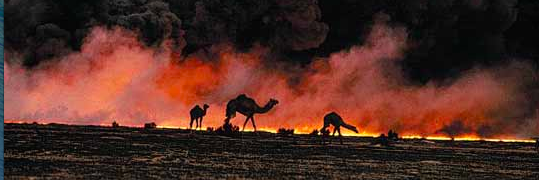For a video summarizing the program, click here.
The impacts of climate change are already being felt across Africa, leading to greater natural resource scarcity, which has contributed to violent conflict in Darfur (Sudan), Mali, and Somalia, among others. This trend is likely to continue, as Africa is projected to be among geographies most severely impacted by climate change. Though the pathway from climate change to greater natural resource scarcity to violence is not a direct one, the risks of conflict will increase as livelihoods are threatened due to greater scarcity of food, water or arable land. With lower government capacities and limited funding to adapt to climate change impacts, and a relatively weak conflict prevention/resolution architecture in place, climate change is likely to have an increasingly important impact on future conflicts in Africa.
This assessment necessitates new policy planning and development thinking. Despite the threats, the broader global interest in climate change also presents significant opportunities to mobilize new interest and momentum for promoting green development in Africa. This can contribute to an effective conflict prevention strategy, and can also drive increased investment and more diversified economies, improved governance and development outcomes, and greater political stability. This project aims to build the theoretical and practical case for a new model for green development, which can provide both political and economic returns, while delivering both climate sensitive and conflict sensitive development.
Our 3–5 year goal is to seed and support a successful “green” pilot in a still to be selected geography in Africa. A successful pilot will require political buy-in and local political champions, as well as new external investment to support green development projects. This can serve as a model that helps demonstrate the political and economic potential of a green approach, the economic potential of a green framework to external investors, as well as effective conflict prevention. It is our hope that the model, once proven, will be scalable in other geographies.
